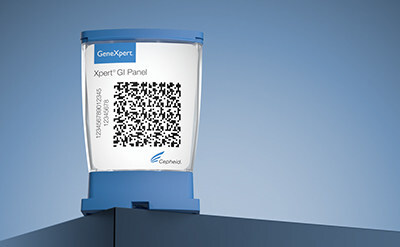The FDA has approved Blujepa (gepotidacin) for the treatment of uncomplicated urinary tract infections (uUTIs) in female adults and pediatric patients aged 12 and older.
GSK’s Blujepa represents the first new oral antibiotic in almost 30 years to address the growing challenge of antibiotic resistance in UTIs.
uUTIs are the most common type of bacterial infection, affecting up to 16 million women in the US each year.
More than half of all women will experience a uUTI in their lifetime, and about 30% will face at least one recurrence — often leading to significant discomfort and disruption of daily life. This underscores the urgent need for new therapeutic options.
The CDC estimates that over 2.8 million antibiotic-resistant infections occur in the US annually, with UTIs being one of the most frequent causes.
Healthy, non‑pregnant women with no structural or functional urinary tract abnormalities typically develop uUTIs, which E. coli usually causes. They are generally mild and treated with short courses of oral antibiotics.
Complicated UTIs, on the other hand, occur in individuals with risk factors such as urinary tract abnormalities, catheters, diabetes or drug-resistant bacteria. They often require longer or intravenous treatment.
The FDA indicates Blujepa specifically to treat uUTIs caused by E. coli and Staphylococcus saprophyticus. The two pathogens account for the vast majority of community-acquired UTIs.
Clinical Trial Results
Blujepa’s approval was based on data from the Phase III EAGLE-2 and EAGLE-3 trials that enrolled over 3,000 patients.
In both studies, Blujepa demonstrated non-inferiority to the current standard-of-care, nitrofurantoin, in achieving clinical and microbiological resolution.
In EAGLE-2, Blujepa achieved non-inferiority in therapeutic success, which occurred in 50.6% (162/320) of participants, compared to 47.0% for nitrofurantoin.
Similarly in EAGLE-3, the treatment demonstrated statistically significant superiority versus nitrofurantoin. Therapeutic success occurred in 58.5% (162/277) of participants compared to 43.6% (115/264) for nitrofurantoin.
Importantly, gepotidacin maintained efficacy against certain resistant strains of E. coli, a growing concern in both hospital and community settings.
XTALKS WEBINAR: Leveraging AI in Clinical Development to Innovate with Greater Confidence
Live and On-Demand: Tuesday, June 3, 2025, at 10am EDT (4pm CEST/EU-Central)
Register for this free webinar to learn how AI-powered technology can uncover potential study design risks by identifying areas of patient burden and complexity.
Significance of Blujepa’s Approval
The approval marks a milestone in the fight against antimicrobial resistance (AMR).
“The approval of Blujepa is a crucial milestone with uUTIs among the most common infections in women. We are proud to have developed Blujepa, the first in a new class of oral antibiotics for uUTIs in nearly three decades, and to bring another option to patients given recurrent infections and rising rates of resistance to existing treatments,” said GSK’s chief scientific officer Tony Wood in the company’s approval announcement.
Unlike many older antibiotics, gepotidacin has a novel mechanism of action that helps circumvent existing resistance patterns. This feature offers a new option for patients who may not respond to standard therapies.
Blujepa is a first-in-class bactericidal triazaacenaphthylene antibiotic. It inhibits bacterial DNA replication in the E. coli class via a distinct binding site and inhibition of two different type II topoisomerase enzymes.
Its mechanism of action differs from fluoroquinolones, a common class of broad-spectrum antibiotics that also inhibit bacterial enzymes. However, Blujepa’s mechanism of action helps retain activity against strains with known resistance to conventional antibiotics.
Wood says AMR is less of a broad concern with Blujepa compared to other drug classes, as its mechanism — targeting E. coli’s unique circular DNA during transcription — is highly specific to that bacterium.
GSK said it plans to launch Blujepa in the US in the second half of 2025.
The company is also evaluating gepotidacin in other indications, including gonorrhea and respiratory tract infections.
Antibiotics Revival After a Long Drought
Blujepa’s approval marks the second of five regulatory milestones GSK aims to achieve this year.
This includes potential label expansions for antibody-drug conjugate Blenrep (belantamab mafodotin-blmf) and asthma treatment Nucala (mepolizumab). The company is also planning the launch of its IL-5 targeting antibody depemokimab as an add-on maintenance asthma treatment.
The company expects these milestones to support its newly raised 2031 sales target of over £40 billion ($50 billion).
According to reporting by Fierce Biotech, GSK remains one of the few companies that are still actively investing in antibiotics. Many drugmakers have abandoned the field over the years due to its lower profitability.
GSK has one of the “largest and most diverse” infectious disease pipelines in the industry. However, innovation remains challenging, according to Melanie Paff, PhD, head of GSK’s hepatitis B program, who told Fierce Biotech in 2023 that the EAGLE trial wins for Blujepa were “hard fought.”
However, the field has seen some recent activity with several notable FDA approvals.
Last year, Allecra Therapeutics won FDA approval for Exblifep (cefepime/enmetazobactam) in complicated UTIs (cUTIs).
In February, AbbVie and Pfizer received FDA approval for their jointly developed Emblaveo (aztreonam/avibactam). This IV treatment targets complicated UTIs caused by multidrug‑resistant gram‑negative bacteria.
In October 2024, Iterum Therapeutics’ Orlynvah (sulopenem etzadroxil/probenecid) was approved for adult women with limited oral antibiotic options. The treatment combines a penem-class antibiotic with a compound that boosts drug levels by slowing excretion.
And in April 2024, Utility Therapeutics won FDA approval for uUTI treatment Pivya (pivmecillinam), a narrow-spectrum oral antibiotic long used in Europe.
Orlynvah and Pivya were the first new oral antibiotics approved for UTIs in the US in nearly two decades.
If you want your company to be featured on Xtalks.com, please email [email protected].












Join or login to leave a comment
JOIN LOGIN